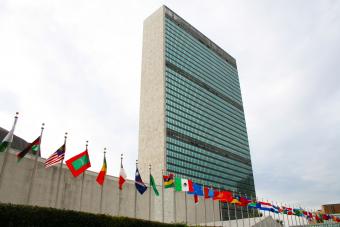International Governance
Recent Activity
In recent years, the European Union has come to recognize that it cannot prevent migration and that it needs a different approach to managing flows from its poorer neighbors. Jean-Pierre Cassarino of the European University Institute looks at the rationale for mobility partnerships and what they will need to be effective.
This brief offers an analysis of the Philippine Overseas Employment Administration, the Philippines’ highly successful system of managing the overseas employment of temporary Filipino workers. The report examines the structure and mechanism of the system, identifies key areas of improvement, and offers policy recommendations for addressing existing flaws.
Along with increased trade and Chinese investment in Africa has come new migration between the two regions. Malia Politzer places this movement in context and looks at the types of Chinese migrants going to Africa and the Africans going to China.
This report, the product of two workshops held on border management in Belgium and Texas, addresses three arenas of significant change shared by the United States and the European Union: 1) new government organizations for controlling borders; 2) the use of information technology to secure borders; and 3) visa‐free travel policies.
This report examines the ways in which governments can make the emerging global mobility system work better for European migrant-receiving countries, their developing-country partners, and the migrants themselves.
This report seeks to bring new light to the issues of migration by sea—particularly the interception and rescue of “boat people”—by synthesizing key discussion takeaways from an international forum of policymakers, international organizations, NGO representatives, and academics.
Schengen eliminated border controls between European countries, and established a common external border. MPI's Julia Gelatt explains the changes brought by Schengen and the effects Schengen has had on European border control, visa, and asylum policies.
This book analyzes approaches, strategies, and best practices from EU Member States that could contribute to a sustainable integration policy. It thus provides European, national, regional, and local decisionmakers with instruments they can draw on in establishing a framework for integration.






